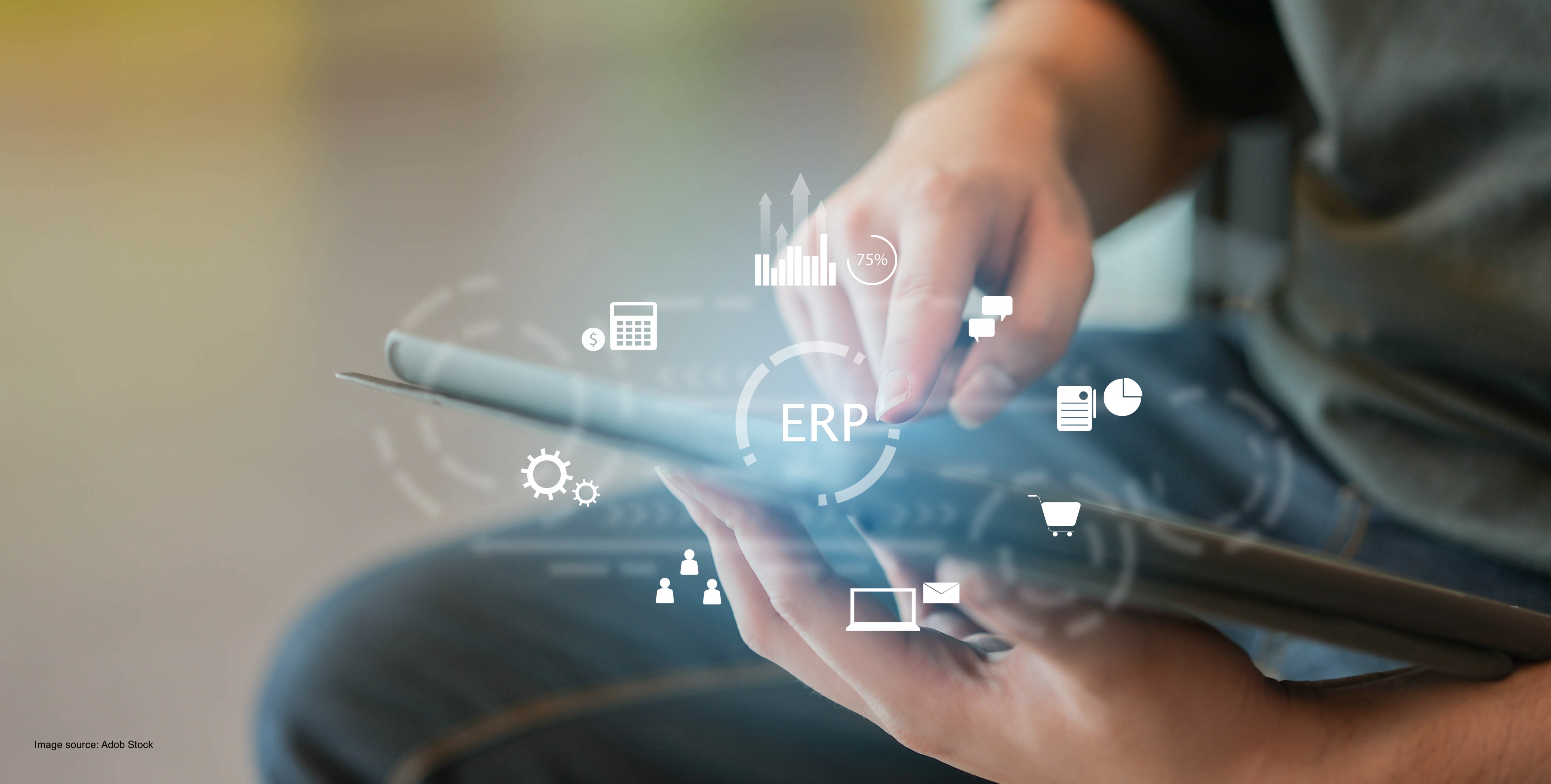Top ERP Trends for 2024
- March 27, 2024
- Posted by: Aanchal Iyer
- Categories: Data Science, Uncategorized

In the dynamic world of enterprise technology, ERP systems are at the heart of business operations, enabling integrated management of core business processes. This year, we will witness several key trends emerge, that will redesign how ERP systems function and offer value to organizations. Let’s delve into these transformative trends.
Top ERP Trends of 2024
Organizations are always looking to upgrade the way they manage their business operations to meet strategic business goals. For this, businesses need to stay updated with the latest ERP trends to harness the full potential of these systems and stay ahead in the dynamic marketplace. The following are the top trends for ERP systems in 2024:
The Expansion of Industry-Specific Solutions
Organizations now realize there is no one-size-fits-all approach within the ERP market. Leading ERP providers now understand that each industry is exclusive and offers more industry-specific features and functionalities. This means, there are fewer customization-related costs, resulting in faster deployment and implementation. Personalized resource planning solutions are the driving force for today’s ecosystem of data context.
ERP Migration to the Cloud
Cloud-based ERPs are getting more popular by the day – replacing on-premise solutions. The reason is that the cloud is convenient and accessible. Most vendors plan to discontinue support for older, on-premise solutions. Also, cloud-based ERPs provide greater flexibility, scalability, and compatibility.
Cloud-based ERPs are better for smaller businesses looking to deploy their first ERP as they also reduce the requirement for in-house IT. This year, SMBs will increasingly use the cloud for most of their applications, including ERP.
Advanced AI and Machine Learning (ML) Applications
ERP systems are continuously being influenced by the rapid evolution of Artificial Intelligence (AI). Integration of advanced AI highlights a significant trend, particularly in decision-making and predictive analysis. AI algorithms within ERP systems will evolve to analyze huge datasets, offering organizations predictive insights for market trends, customer behaviors, and operational patterns. Such evolution will improve the ERP systems’ forecasting capabilities, enabling businesses to make informed decisions. The trend of advanced AI in ERP covers Machine Learning (ML) for continuous system optimization as well. ML algorithms help analyze historical data, detect patterns, and automatically leverage various aspects of ERP systems. ML applications within ERP enable systems to adapt and learn from changing environments.
Extended Reality (XR) in ERP
The integration of Extended Reality (XR) within ERP systems has emerged as a transformative trend in 2024. This encompasses both Augmented Reality (AR) and Virtual Reality (VR).
This trend steps beyond conventional interfaces, launching immersive experiences that enhance how users communicate with ERP data. AR overlays digital information onto the physical world, while VR immerses users in a simulated environment. The fusion of AR and VR within ERP systems opens new dimensions for visualizing data, processes, and insights, creating a more engaging and intuitive user experience.
More Focus on User Experience and Accessibility
One of the most exciting trends this year is that users are no longer a secondary factor in ERP design. As User Experience (UX) and accessibility is a key factor in ERP adoption, developers are concentrating on developing more user-friendly interfaces compatible with mobile apps too. With mobile apps, organizations can offer better control over business processes as users can create, access, and share data directly from their mobile devices. We will witness ERP solutions prioritizing UX in 2024 for better user interaction and to get value from their ERP solution.
Hyper Automation for Business Process Optimization
Hyper automation emphasizing the Robotic Process Automation (RPA) integration within ERP systems is one of the most anticipated trends this year. RPA comprises the deployment of software robots that automate redundant, rule-based tasks, freeing up employees to concentrate on more important tasks at hand.
RPA within ERP systems helps in the automation of routine processes such as data entry, invoice processing, and order fulfillment. The trend of hyper-automation is beyond single automation efforts, aiming to accomplish an interconnected and comprehensive automation ecosystem within ERP workflows.
This involves the integration of different automation technologies, including AI, ML, and business process management, to develop an efficient automation framework.
Better Cybersecurity Measures
With escalating cyber threats, enhanced cybersecurity measures are being brought to the forefront of ERP trends. ERP systems store sensitive business data, and thus, are prime targets for cyberattacks. This year the focus will be on fortifying defenses to prevent evolving threats, ensuring the confidentiality, integrity, and availability of crucial business information. From phishing attacks to ransomware, ERP systems are strengthening their security protocols to identify, prevent, and respond to cyber threats in real time. A notable feature of the enhanced cybersecurity trend is the incorporation of blockchain technology. Blockchain, popular for its decentralized and cryptographic nature, offers a robust layer of security for ERP systems.
By deploying blockchain, ERP systems can protect transactions, data exchanges, and sensitive information with a highly versatile and transparent ledger.
More and More Integrations
Integration will continue to grow this year. The biggest trend one can expect is integration with the Internet of Things (IoT). ERPs are beginning to integrate with IoT devices to capture important data, offering real-time asset monitoring, predictive maintenance, and a more comprehensive view of supply chain operations. However, it’s not just IoT integrations that can enhance the ability of an ERP. Integration across platforms can help consolidate functionality to enhance business overall.
Conclusion
Aretove stands as a strategic partner for organizations seeking to leverage the potential of the latest ERP trends. With their expertise, customization capabilities, and commitment to ongoing support, Aretove helps businesses navigate the complexities of modern ERP landscapes. By providing personalized solutions, seamless integration, and comprehensive training, Aretove ensures that organizations can harness the benefits of the latest ERP trends. Ultimately, our service-based approach helps businesses stay agile, enhances efficiency, and accomplishes sustainable growth in an ever-evolving digital ecosystem.
